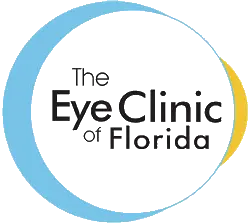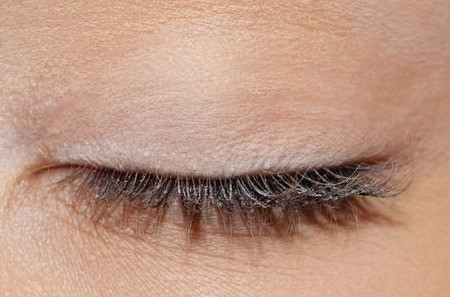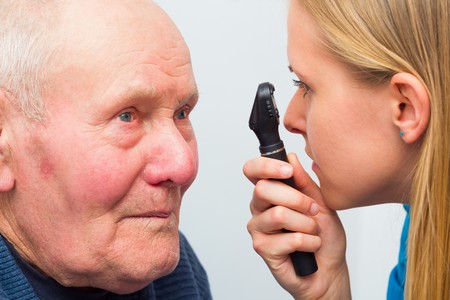Are You At Risk Of Cataracts?
 Losing your sharp vision to age isn’t the only threat that your eyes face over time. Cataracts are also a major concern, especially for the elderly. Learn all about cataracts to identify your risk level and seek the treatment you need to preserve as much of your vision as possible.
Losing your sharp vision to age isn’t the only threat that your eyes face over time. Cataracts are also a major concern, especially for the elderly. Learn all about cataracts to identify your risk level and seek the treatment you need to preserve as much of your vision as possible.
What Are Cataracts?
A cataract forms when the normally clear lens of the eye becomes yellow or cloudy, making everything appear like it is behind a foggy or frosty window. It’s not a sudden condition, but one that gradually forms until it can no longer be resolved with just eyeglasses and stronger lighting.
On a healthy eye, the lens sits positioned behind the colored iris and works to focus light that passes into the eye. When the lens does this correctly, the membrane on the back inside wall of the eyeball basically functions like the film of a camera to help images become visible. However, as the lens yellows into a cataract, the cataract scatters incoming light and prevents sharply defined images from reaching the retina like it should.
What Are the Common Symptoms of Cataracts?
A cataract can be identified from a few different symptoms, none of which should be ignored or assumed to be insignificant.
- You need to change your eyeglasses or contact prescription
- You see halos around lights
- Increased sensitivity to light and glare
- Double vision
- Cloudy vision
As the cataract grows, the symptoms will become more obvious, until you can no longer ignore them. You may also notice that the natural lens of your eye looking yellow. (more…)

 You probably don’t think about the health of your eyelids as much as you consider the health of your heart or skin, but the truth is that your eyelids play an important role in your overall well being. This means they are also prone to a number of different problems and diseases. If you have been experiencing any of the following, the following issues could be to blame.
You probably don’t think about the health of your eyelids as much as you consider the health of your heart or skin, but the truth is that your eyelids play an important role in your overall well being. This means they are also prone to a number of different problems and diseases. If you have been experiencing any of the following, the following issues could be to blame. We all know Botox as the miracle wrinkle treatment that reduces signs of wrinkles along the face, but anti-aging is far from the only purpose of Botox. Believe it or not, Botox offers a range of medical uses that improve your vision health and help you enjoy a better quality of life. Here’s what you should know!
We all know Botox as the miracle wrinkle treatment that reduces signs of wrinkles along the face, but anti-aging is far from the only purpose of Botox. Believe it or not, Botox offers a range of medical uses that improve your vision health and help you enjoy a better quality of life. Here’s what you should know! You take steps to protect your heart health and skin health, but what about your eye health? The truth is that adults over the age of 40, especially those of African American and Hispanic descent, are at highest risk of glaucoma. By educating yourself now, you can prevent unwanted eye conditions in the future and preserve your quality of life.
You take steps to protect your heart health and skin health, but what about your eye health? The truth is that adults over the age of 40, especially those of African American and Hispanic descent, are at highest risk of glaucoma. By educating yourself now, you can prevent unwanted eye conditions in the future and preserve your quality of life. It’s not uncommon for vision to weaken with age, especially at night, but this is a dangerous trend. If your own diminishing vision makes it difficult to drive at night, it’s important to see your eye doctor for the right treatment.
It’s not uncommon for vision to weaken with age, especially at night, but this is a dangerous trend. If your own diminishing vision makes it difficult to drive at night, it’s important to see your eye doctor for the right treatment. You have probably given plenty of thought to the way that wrinkles are changing the appearance of your skin, but have you ever contemplated the role that your eyelids play on your face? It is very common for the eyelids to droop with age and make you look much older and fatigued than you are. Fortunately, cosmetic eyelid surgery, also known as blepharoplasty, is a minor procedure that can have a major positive impact on the appearance of your face.
You have probably given plenty of thought to the way that wrinkles are changing the appearance of your skin, but have you ever contemplated the role that your eyelids play on your face? It is very common for the eyelids to droop with age and make you look much older and fatigued than you are. Fortunately, cosmetic eyelid surgery, also known as blepharoplasty, is a minor procedure that can have a major positive impact on the appearance of your face.  As a dry eye sufferer, you understand just how much the condition can interrupt your daily schedule and diminish your quality of life. You might use lubricant eye drops in an effort to stay comfortable, but have you ever stopped to think about how much money those drops are costing you, likely for minimal results?
As a dry eye sufferer, you understand just how much the condition can interrupt your daily schedule and diminish your quality of life. You might use lubricant eye drops in an effort to stay comfortable, but have you ever stopped to think about how much money those drops are costing you, likely for minimal results?  We’ve all endured temporary headaches after stressful days at work or long days of squinting into the sun, but chronic headaches are a monster of their own. Chronic headaches and migraine pain is often debilitating, robbing patients of their quality of life. If you can relate, your vision could be to blame.
We’ve all endured temporary headaches after stressful days at work or long days of squinting into the sun, but chronic headaches are a monster of their own. Chronic headaches and migraine pain is often debilitating, robbing patients of their quality of life. If you can relate, your vision could be to blame.  It would be wonderful if vision never faded or changed, but the unfortunate reality is that the majority of adults will experience significant vision problems as they get older. Many of these vision problems are caused by cataracts, the yellowing or clouding of the lense of the eye. Cataracts used to be considered an irreversible condition, but thanks to Crystalens implants, cataract patients now have a second chance at clear vision.
It would be wonderful if vision never faded or changed, but the unfortunate reality is that the majority of adults will experience significant vision problems as they get older. Many of these vision problems are caused by cataracts, the yellowing or clouding of the lense of the eye. Cataracts used to be considered an irreversible condition, but thanks to Crystalens implants, cataract patients now have a second chance at clear vision.  There are so many different cosmetic treatments available to help you look younger, but which can actually deliver sustainable, natural, and long-lasting results? When it comes to the skin around your eyes, brows, and cheeks, the answer is simple: contura fat relocation. That’s right, the unwanted fat on your thighs or abdomen can actually be used to enhance the appearance of your face! Can you think of a better way to ring in the New Year?
There are so many different cosmetic treatments available to help you look younger, but which can actually deliver sustainable, natural, and long-lasting results? When it comes to the skin around your eyes, brows, and cheeks, the answer is simple: contura fat relocation. That’s right, the unwanted fat on your thighs or abdomen can actually be used to enhance the appearance of your face! Can you think of a better way to ring in the New Year?